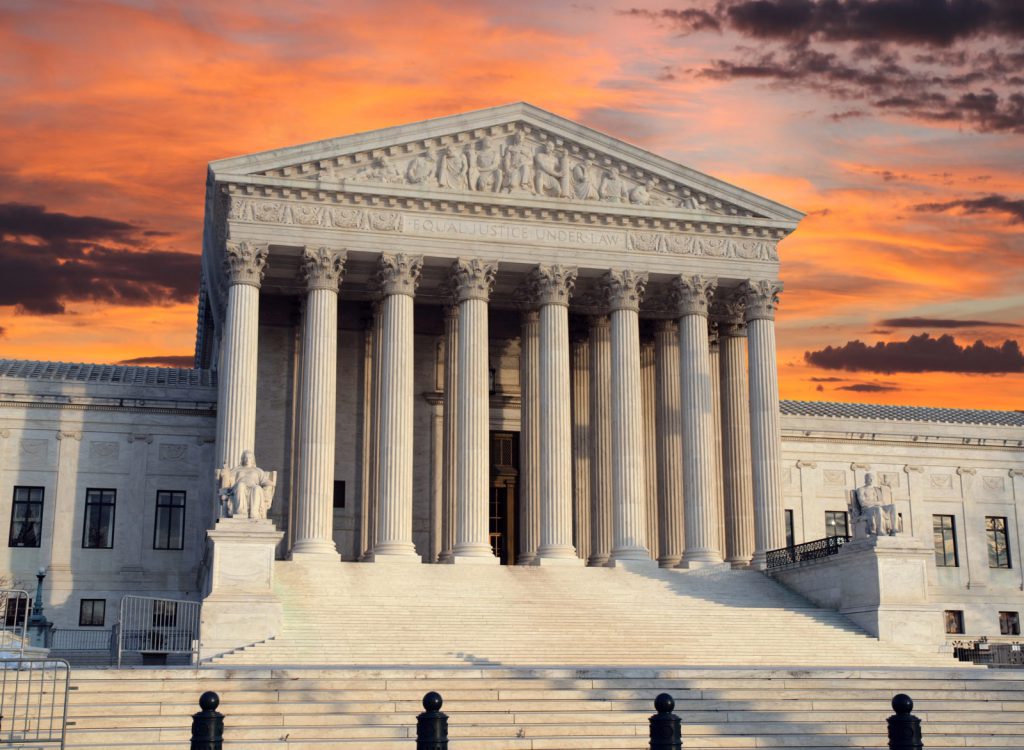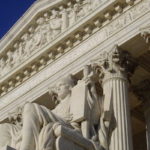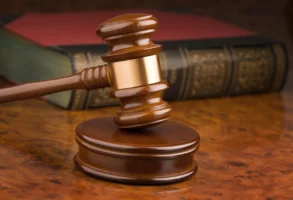
Published September 20, 2016
I’m puzzled in several respects by Evan Bernick’s case for what he calls judicial engagement:
1. On the matter of how judges should approach the Constitution, the most fundamental and glaring divide in the American legal culture is between originalism on the one hand and various non-originalist theories (the “living Constitution,” pragmatism, and so on) on the other.
The core principle of the family of originalist methodologies is that the various provisions of the Constitution, like the provisions of other laws, should be interpreted in accordance with the meaning they had at the time they were adopted. (The competing schools of originalism differ as to what evidence is most probative of that meaning.) By contrast, advocates of the decades-dominant non-originalist approaches maintain that judges have broad authority to impose new meanings on the Constitution—to eviscerate, for example, rights and limits on government power that interfere with perceived contemporary needs and to invent whatever new constitutional rights they think desirable.
Bernick knows all this very well and just last month, in making a cogent case for originalism, emphasized that the “first and foremost reason … to adopt any particular mode of constitutional interpretation is to figure out what the Constitution actually means.” So it’s surprising that the word originalism and its cognates never appear in his essay, and it’s especially jarring that he seems to think it less important that the next Supreme Court justice be committed on the first-order issue of originalism than on the subsidiary question of judicial engagement.
2. Bernick’s attack on judicial restraint seems to presuppose that any such concept incorporates 19th-century scholar James Bradley Thayer’s theory that judges should decline to apply a federal statute only when the unconstitutionality of the statute is “so clear that it is not open to rational question.”[1] But few if any modern proponents of judicial restraint embrace Thayer’s standard. (Indeed, Thayer himself did not apply his standard of exceptional deference to judicial review of state laws.)
Does Bernick believe it to be illicit judicial restraint to hold that a judge, after deploying the traditional tools of interpretation, may deem a statute unconstitutional only if it clearly conflictswith the determined meaning of a constitutional provision? If so, he is disputing much more venerable authorities than Thayer. As Chief Justice John Marshall stated in 1810 in Fletcher v. Peck, in order for a judge to deem a law void, “[t]he opposition between the constitution and the law should be such that the judge feels a clear and strong conviction of their incompatibility with each other.” (Emphasis added.) Indeed, Alexander Hamilton’s famous defense of the power of judicial review in Federalist No. 78 contemplates that judges will decline to enforce a statute on constitutional grounds only when there is an “irreconcilable variance” between the statute and the Constitution.
In a supposed illustration of “judicial restraint’s failure,” Bernick laments that Chief Justice Roberts, in the first Obamacare case, “understood himself to be obliged to adopt any ‘fairly possible’ interpretation that would “save [the statute] from unconstitutionality.” (Bernick’s emphasis and brackets.) But such an understanding comports fully with Hamilton’s: “So far as [two legal texts] can, by any fair construction, be reconciled to each other, reason and law conspire to dictate that this should be done.” (Hamilton is referring in the actual sentence to reconciling two statutes, but he is expressly doing so to illustrate how the Constitution and statutes are to be read together.) Bernick’s real complaint would instead appear to be that Roberts misapplied judicial restraint by adopting an interpretation that Bernick thinks wasn’t “fairly possible.” That would be a mark against misapplying judicial restraint, not a mark against applying it properly.
3. Bernick claims that there is some sort of conflict between judicial restraint and a judicial duty ofindependent judgment (of not indulging will). Insofar as judicial restraint requires that a statute not be deemed unconstitutional unless it has been clearly shown to violate the meaning of a constitutional provision, that conflict is illusory.
Bernick relies on Philip Hamburger’s Law and Judicial Duty for the duty of independent judgment. But Hamburger spells out in that same historical work that the duty of independent judgment required that judges treat a statute as binding unless it was “manifestly contrary” to the Constitution. (I understand Hamburger’s account to comport with Hamilton’s and Marshall’s—to contemplate, that is, that judges will use the traditional tools of clarification before determining that a manifest contradiction exists.)
4. Bernick correctly observes that conservative critics of the Warren Court faulted it for failing to exercise judgment independent of will. But he somehow contends that their judicial approach “differed scarcely, if at all, from that of the progressives.” If I’m understanding him properly, he is implying—wrongly, in my view—that the conservative position that the Constitution does not protect “unenumerated” rights is itself an exercise of will rather than judgment. But Bernick doesn’t even trouble himself to provide any support for his apparent claim.
Bernick also seems to find fault with Judge Robert Bork’s statement that “in wide areas of life majorities are entitled to rule, if they wish, simply because they are majorities.” But Bork was stating a constitutional proposition of American self-government, not a moral proposition, and I don’t see how anyone can fairly dispute it. Further, in his very next sentence, Bork stated the second of “two opposing principles” in our “Madisonian system”—that “there are nonetheless some things majorities must not do to minorities, some areas of life in which the individual must be free of majority rule.”
5. What is judicial engagement anyway, and how should it have any significance apart from the logically prior question of what the Constitution means?
Bernick says that judicial engagement “consists of a genuinely impartial effort to assess the constitutional propriety of the government’s true ends and means in light of evidence in the record” and “provides that the government must bear the burden of producing evidence and must articulate a reason for its actions when those actions are challenged in court.” Well, which ends and means are “proper” and whether there is any need for “evidence” surely depend on the meaning of the constitutional provision that the challenger of a law is invoking. Moreover, contrary to what Bernick seems to suggest, it is “genuinely impartial” for a judge to insist that a challenger bear the burden of establishing that a law is clearly unconstitutional.
In the end, is judicial engagement anything more than camouflage for libertarian judicial activism—an effort to smuggle in the back door what can’t be formally established by straightforward and persuasive arguments about original meaning? Count me extremely skeptical.
Note
[1] By John McGinnis’s account, Thayer argued not only that federal judges should “defer [to congressional enactments] whenever there is any lack of clarity on the face of a [constitutional] provision” (emphasis added) but also that they should not resort to the traditional tools of interpretation to resolve any lack of clarity.
Ed Whelan is president of the Ethics and Public Policy Center.












